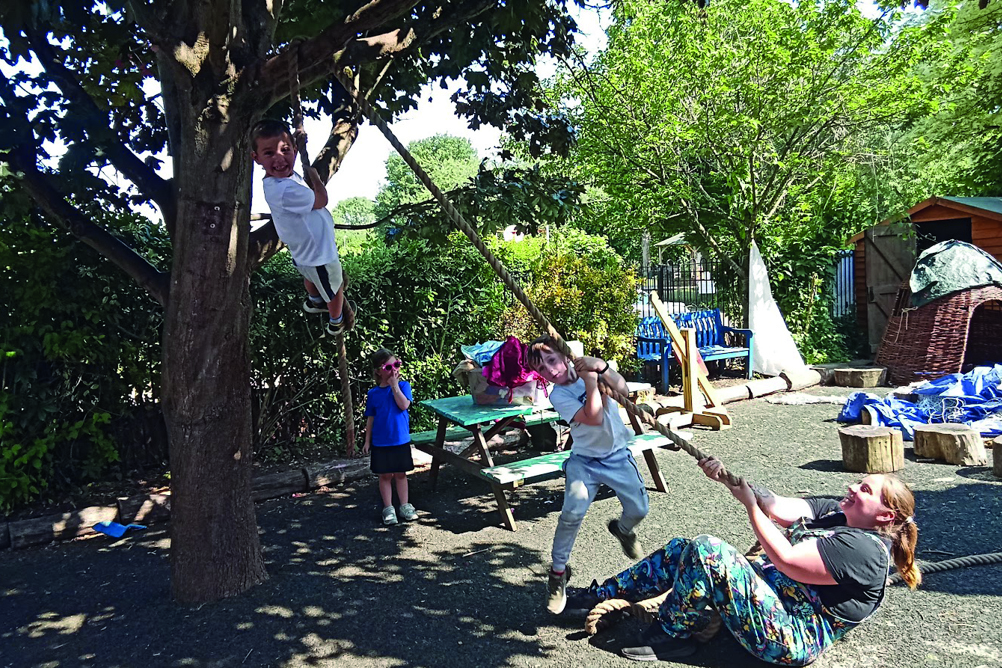
Look around the outdoor area at Crawfords CofE Primary School in Haughley, Suffolk and it is equipped with large loose parts – lots of tyres, wooden beams, pallets, crates, tarpaulin – and busy, engaged children. They are problem-solving in the construction area, others are den-building, digging in a sand pit and working together to make mud pies, while children are dancing to music on a stage and dressing up or relaxing in a quiet, sensory area with their friends. Some children are even on the field balancing and running on top of big cable drums.
This isn’t the school’s Foundation Stage area but a typical break time for Key Stage 1 and 2 children, with all ages playing and learning together at the school, which adopted the OPAL (Outdoor Play and Learning) Primary Programme almost three years ago.
Register now to continue reading
Thank you for visiting Nursery World and making use of our archive of more than 35,000 expert features, subject guides, case studies and policy updates. Why not register today and enjoy the following great benefits:
What's included
-
Free access to 4 subscriber-only articles per month
-
Unlimited access to news and opinion
-
Email newsletter providing activity ideas, best practice and breaking news
Already have an account? Sign in here









